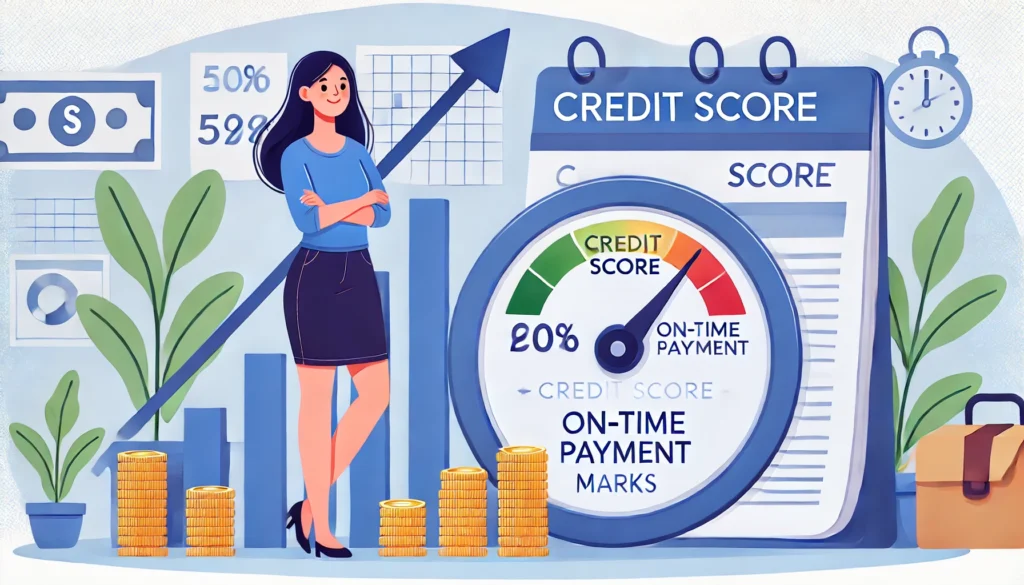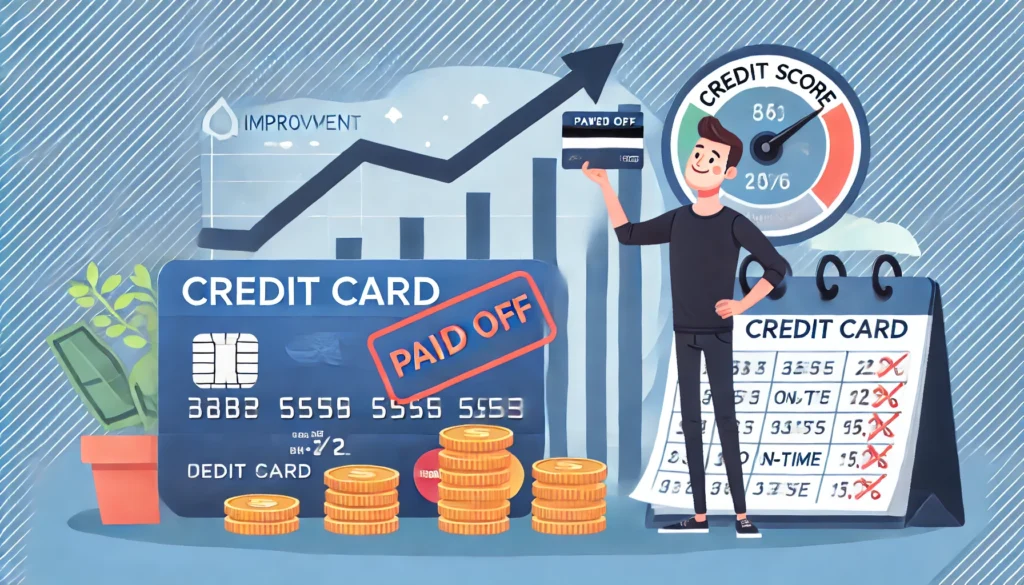Paying off a credit card is a significant financial milestone that can positively impact your credit score by empowering payment history and reducing credit utilization.
However, understanding the specifics of how and why this happens requires delving into the nuances of credit scoring.
This article will explore the factors that influence credit scores and how paying off a credit card can lead to improvements in your overall financial health.
These are the key takeaways:
- Paying off a credit card can lead to an improved credit score.
- Credit utilization and payment history are critical factors in credit scoring.
- Keeping old accounts open can positively affect your credit history length.
- Immediate score changes might be small, but long-term benefits are substantial.
What Factors Affect Your Credit Score?

Credit scores are calculated based on several key factors, including payment history, credit utilization ratio, length of credit history, types of credit used, and recent credit inquiries.
Each of these components plays a crucial role in determining your overall creditworthiness.
Payment History
Payment history accounts for 35% of your credit score. Consistently making on-time payments positively impacts your score, while missed payments can significantly harm it.
Credit Utilization Ratio
The amount of credit you’re using relative to your credit limit makes up 30% of your score. Lowering your credit utilization by paying off credit card balances can lead to a noticeable improvement in your score.
Length of Credit History
This factor represents 15% of your score. The longer your credit accounts have been open, the better. Paying off a credit card and keeping the account open can help maintain a long credit history.
Credit Mix and Recent Credit Inquiries
Together, these factors account for 20% of your score. A diverse credit mix and limited recent credit inquiries can help improve your credit score over time.
How Does Paying Off a Credit Card Improve Your Credit Score?

Paying off a credit card affects several credit score factors, primarily credit utilization and payment history.
By reducing your credit card balance, you lower your credit utilization ratio. For example, if you have a $10,000 credit limit and a $5,000 balance, your utilization is 50%. Paying off the balance reduces this ratio to 0%, which is ideal for your credit score.
Moreover, a paid-off credit card reflects positively on your payment history. If the account remains open, it continues to contribute positively to the length of your credit history. Closing the account could potentially reduce your average account age, which might slightly impact your score negatively.
Are There Immediate Changes in Your Credit Score?
Immediate changes in your credit score after paying off a credit card may be minimal.
Credit reporting agencies update scores periodically, and it might take a few weeks for the payment to reflect.
However, the long-term benefits are substantial. Over time, consistent on-time payments and low credit utilization will contribute to a steadily increasing credit score.
Here’s an example illustration:
Let’s consider a scenario where you have a credit card with a $10,000 limit and a $5,000 balance. According to the FICO scoring model, which is widely used by lenders, your credit utilization ratio, in this case, is 50%.
Current Situation:
- Credit Limit: $10,000
- Balance: $5,000
- Credit Utilization Ratio: 50%
In the FICO scoring model, a credit utilization ratio above 30% can negatively impact your score. By paying off the $5,000 balance, you reduce your utilization ratio to 0%, which is optimal.
Here’s how paying off this balance can impact your credit score:
After Paying Off the Credit Card:
- Credit Limit: $10,000
- Balance: $0
- Credit Utilization Ratio: 0%
What are the immediate improvements here?
Credit Utilization Improvement: Reducing your utilization ratio from 50% to 0% can result in a significant score increase. The FICO scoring benchmark suggests that a lower utilization ratio indicates lower risk to lenders.
Positive Payment History: Making the payment reinforces a positive payment history, which is the most significant factor in your FICO score, accounting for 35% of the total score.
Length of Credit History: By keeping the account open, you maintain the length of your credit history, which contributes 15% to your score.
What will be the impact on FICO score?
While exact numbers can vary, it’s reasonable to expect a noticeable improvement in your score.
For instance, if your score was 650 before paying off the balance, it might increase to around 680-700, reflecting the improved credit utilization and sustained positive payment history.
What Should You Do After Paying Off a Credit Card?
After paying off a credit card, consider keeping the account open to maintain a long credit history.
Additionally, continue to use the card occasionally and pay off the balance in full each month to keep your credit utilization low and your payment history positive.
We suggest you monitor your credit utilization ratio regularly. Your debt-to-income ratio should always stay near 30% to experience a credit score improvement.
How Do Credit Monitoring and Financial Management Play a Role?
Regularly monitoring your credit score and reports can help you stay on top of changes and identify areas for improvement.
Utilizing financial management tools and strategies, such as budgeting strategies and debt repayment plans, can support your efforts to maintain a healthy credit score.
What Are the Indirect Benefits of Paying Off a Credit Card?
Beyond improving your credit score, paying off a credit card offers several indirect benefits that contribute to your overall financial well-being.
These advantages extend beyond the immediate improvement in your credit profile and help establish a stronger, more secure financial future.
Paying off credit card debt means you no longer have to pay interest on the outstanding balance. According to data from the Federal Reserve, the average annual percentage rate (APR) for credit cards is around 16.30%. If you had a $5,000 balance, you could be paying approximately $815 in interest annually. By eliminating this debt, you save money that can be redirected toward other financial priorities. Learn about debt repayment strategies here.
Similarly, without the burden of credit card debt, you gain more flexibility in managing your finances. This newfound freedom allows you to make more strategic decisions about spending and saving. For example, you can use the money previously spent on interest payments to build an emergency fund, invest in retirement accounts, or save for significant purchases like a home or car.
Moreover, repaying credit cards will improve your DTI ratio, which is a crucial factor that lenders consider when you apply for loans. By paying off your credit card debt, you lower your DTI ratio, making you a more attractive borrower. This can be particularly beneficial when applying for mortgages or personal loans, as a lower DTI ratio can lead to better interest rates and loan terms.
Lastly, clearing your credit card balance provides an opportunity to use your available credit more strategically. For instance, maintaining a low credit utilization ratio by occasionally using the card for small purchases and paying off the balance in full each month can help keep your credit score high.
You can only notice these long-term improvements if you can show strong financial dedication to budgeting and maintaining your financial goal.
Conclusion
Paying off a credit card can indeed lead to an increase in your credit score by improving your credit utilization ratio and contributing positively to your payment history.
While immediate changes might be minimal, the long-term benefits are significant. Maintaining good credit habits, such as keeping old accounts open and monitoring your credit, will help ensure sustained financial health and a higher credit score.
